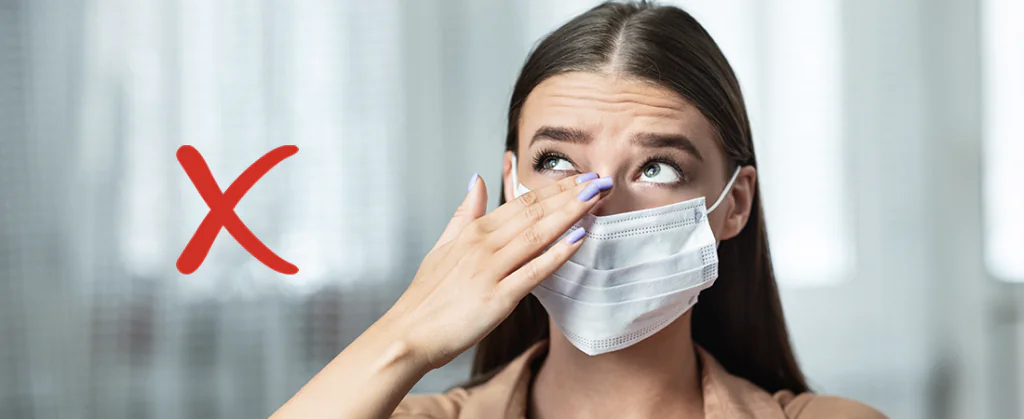While many governments across the world have continued with the lockdown, several others are now easing up with the restrictions. They are allowing people to move out in a steady and regulated way amidst the coronavirus pandemic. Therefore, it has become essential that you not only use hand sanitizers and face masks on a more frequent basis but also be careful about your eyes because they are exposed while you are outside.
Coronavirus can spread through the eyes
Coronavirus causes mild to severe sickness and respiratory illness. A person suffering from COVID-19 will show symptoms like fever, shortness of breath, and cough for over 2-15 days. If not treated timely, the infected person can develop pneumonia and die. When a person infected by coronavirus coughs or sneezes, the virus particles from his/her mouth can reach the face, mouth, or eyes of the person standing nearby. The person near the sick person can most likely inhale these droplets through nose and mouth. The droplets can get inside that person through eyes as well. Hence, it is essential to take care of your eyes as well in the times of the coronavirus pandemic.
Here are some eye care tips for avoiding coronavirus to get into you from eyes
- Avoid touching your eyes
By now, we all are well aware of the importance of washing hands in the times of the coronavirus pandemic. Coronavirus can stay on objects for days. Hence it becomes necessary that when you touch them, you make sure not to feel your eyes after that.
- Wear eyeglasses instead of contact lenses
People wearing contact lenses often report irritation and end up touching their eyes. So, if you wear contact lenses, it would be better if you switch to eyeglasses for some time.
- Conjunctivitis or ‘Pinkeye’ is a COVID-19 symptom, but it’s rare. Avoid touching eye discharge
If you have a ‘pink eye’, do not panic. It does not necessarily mean that you have coronavirus. About 1% to 2% of reported coronavirus cases have shown some symptoms of ‘pink eye’ or conjunctivitis. Prevent yourself from getting in contact with the fluid from an infected person’s eyes or from objects that carry the fluid.
- Wear glasses as a layer of protection
Both sunglasses and corrective lenses can act as added layers of protection from infected respiratory droplets. Though they do not provide 100% security, they act as a stronger defence when you are near an infected patient or potentially exposed person.
- Avoid rubbing your eyes
Some people have a habit of rubbing their eyes. Rubbing eyes increases the risk of infection. If you feel the urge to itch your eyes, then use a tissue instead of your fingers.
- Practice safe hygiene and social distancing
- There are several tips that you can follow and help slow the spread of disease:
- Wash your hands with soap and water for at least 20 seconds.
- Do not forget to wash your hands before eating, and after using the restroom.
- Avoid close contact with sick or infected people. Maintain a six feet distance.
- Stay at home and avoid going outside when sick.
- Keep on disinfecting often touched surfaces and items like kitchen slab, tabletop, doorknobs, etc.
- Get ready for new normal as you visit your eye care practitioner
Centre for Sight is well equipped with all necessary protocols in place. With one attendant policy, compulsory masks, minimal waiting, patient care area with social distancing and recurrent sanitisation, Centre for Sight can be your prime choice for best eye care all the while maintaining adequate precautions and due care.
- Keep refills of certain eye medications
If you take certain eye medicines regularly, which you cannot stay without, make sure to have enough of them. This will help you if you are quarantined or if supplies become limited. Though, this way is not possible for many people. For obtaining this, your doctor or pharmacist may help you through insurance.
- Consider home remedies for treating common eye ailments
- Some eye conditions can temporarily be treated at home, like eye strain, dry eyes, etc. Try at-home remedies. Consult an eye specialist if your condition persists.
Centre for Sight is always there for your eye care. We provide comprehensive treatment for an array of eye ailments. Keeping in guidelines and preventive measures in places, CFS is available for your eye-related disorders.





